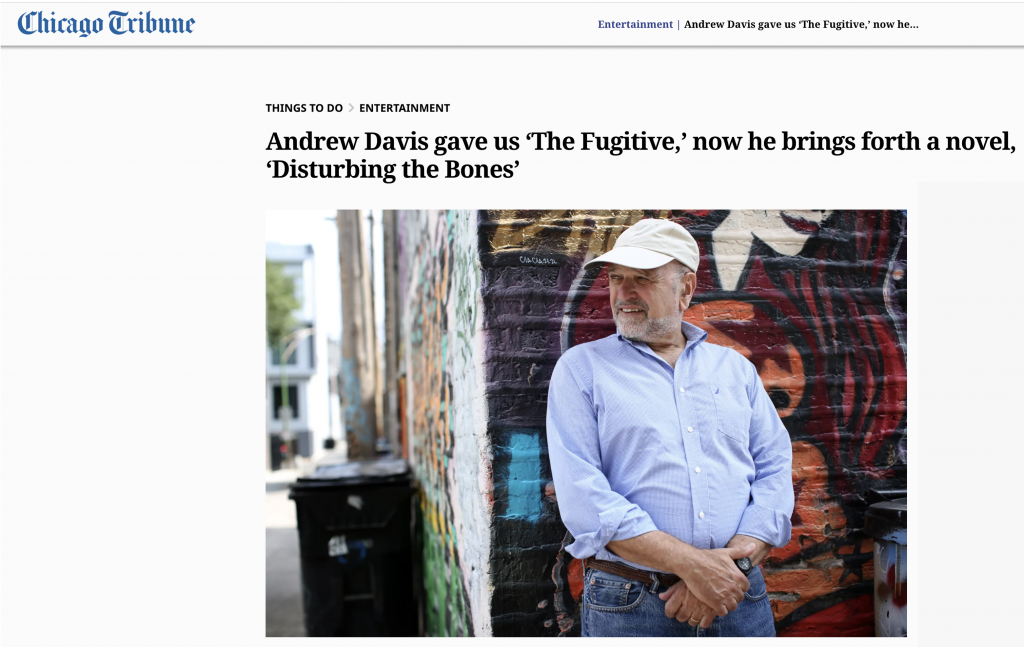
Full story: https://www.chicagotribune.com/2024/10/15/andrew-davis-the-fugitive-disturbing-the-bones/
"Though he is rightly acclaimed for his “visual “accomplishments, which include directing a
bunch of successful movies, especially “The Fugitive,” I was holding in my hands a book
“Disturbing the Bones,” and on its cover was his name, along with that of co-author JeZ
Biggers.
“Yes, I wrote the book, a novel,” he said. “Wrote it with JeZ and with much work. It was new
to me, but I did start out by studying journalism in college, you know, and I have written
some screenplays. But a novel is a very diZerent thing. Yes, it was challenging but a
creative joy. I hope people like it.”
He wears those modest insecurities lightly, because there has been much advance
excitement and praise for the book, such as this from our own master of crime fiction, Sara
Paretsky: “Andy Davis fans will find everything in this story they expect from the creator of
‘The Fugitive’ — a high-voltage thriller, an amazing range of characters, and an astonishing
conclusion.”
Michael Mann, another Chicagoan and famous filmmaker (“Thief,” “Manhunter,” “Heat,”
and, most recently, “Ferrari”) who recently dove into the literary fiction world with his “Heat
2,” written with Meg Gardiner, calls this book “a knife-edged investigation that morphs into
a political thriller about a world on the brink.”
It was born in Chicago a decade ago, when Davis met Biggers in the back room of the
Heartland Cafe for a taping of the radio show “Live From the Heartland,” hosted by Michael
James, Thom Clark and Katy Hogan.
Biggers, a historian and investigative journalist, was on the show to talk about his then-new
book, “Reckoning at Eagle Creek,” which the Sun-Times called, “an insightful project
blending Biggers’ personal connections to his southern Illinois roots with a cutting analysis
of the staggering human and environmental cost of coal mining.” Fortuitously, Davis was
also a guest.
“I was impressed with and liked JeZ,” he says. “I immediately read his book and realized
what a tremendous understanding he had of this area, of race relations, of humanity.”
The two men, Davis mostly from his home in Santa Barbara, California, and Biggers from
places around the country, began to collaborate on what they initially intended to be a
screenplay. “We kept feeling the need to build backstories for the characters,” Davis says.
“As that happened it began to feel to both of us that what we had was not a movie but a
novel and we plowed ahead.”